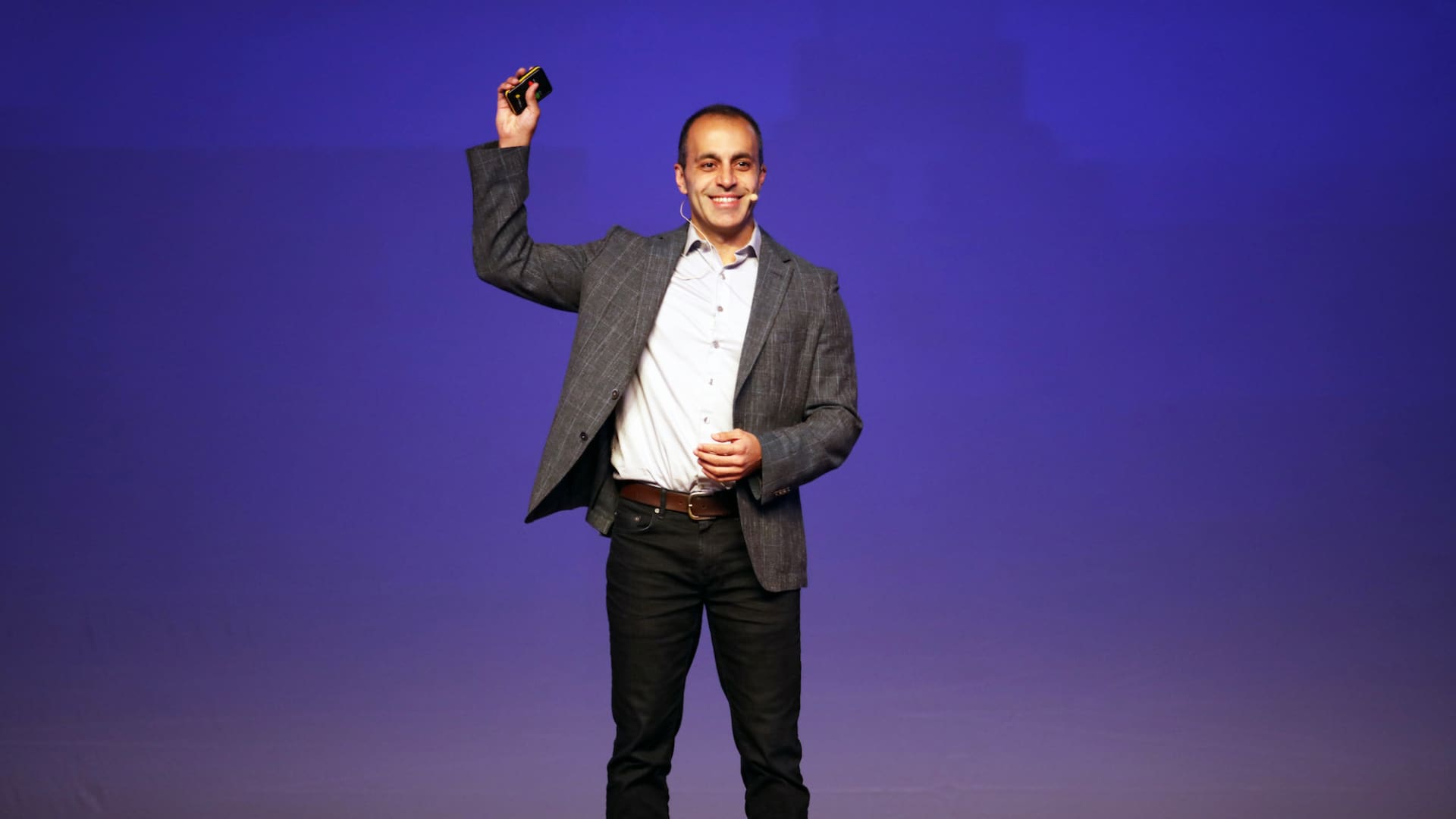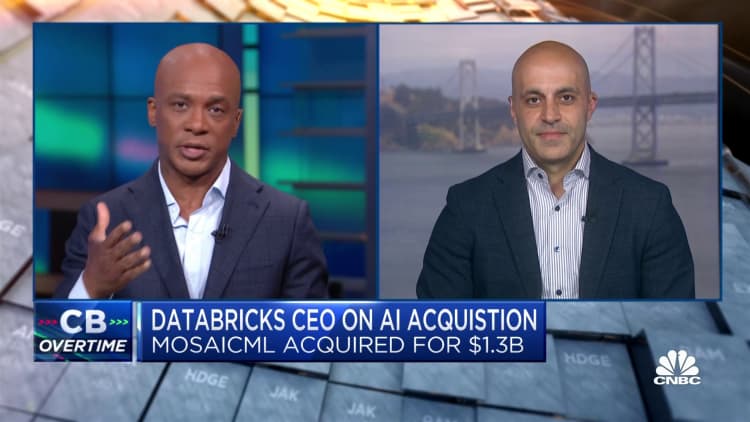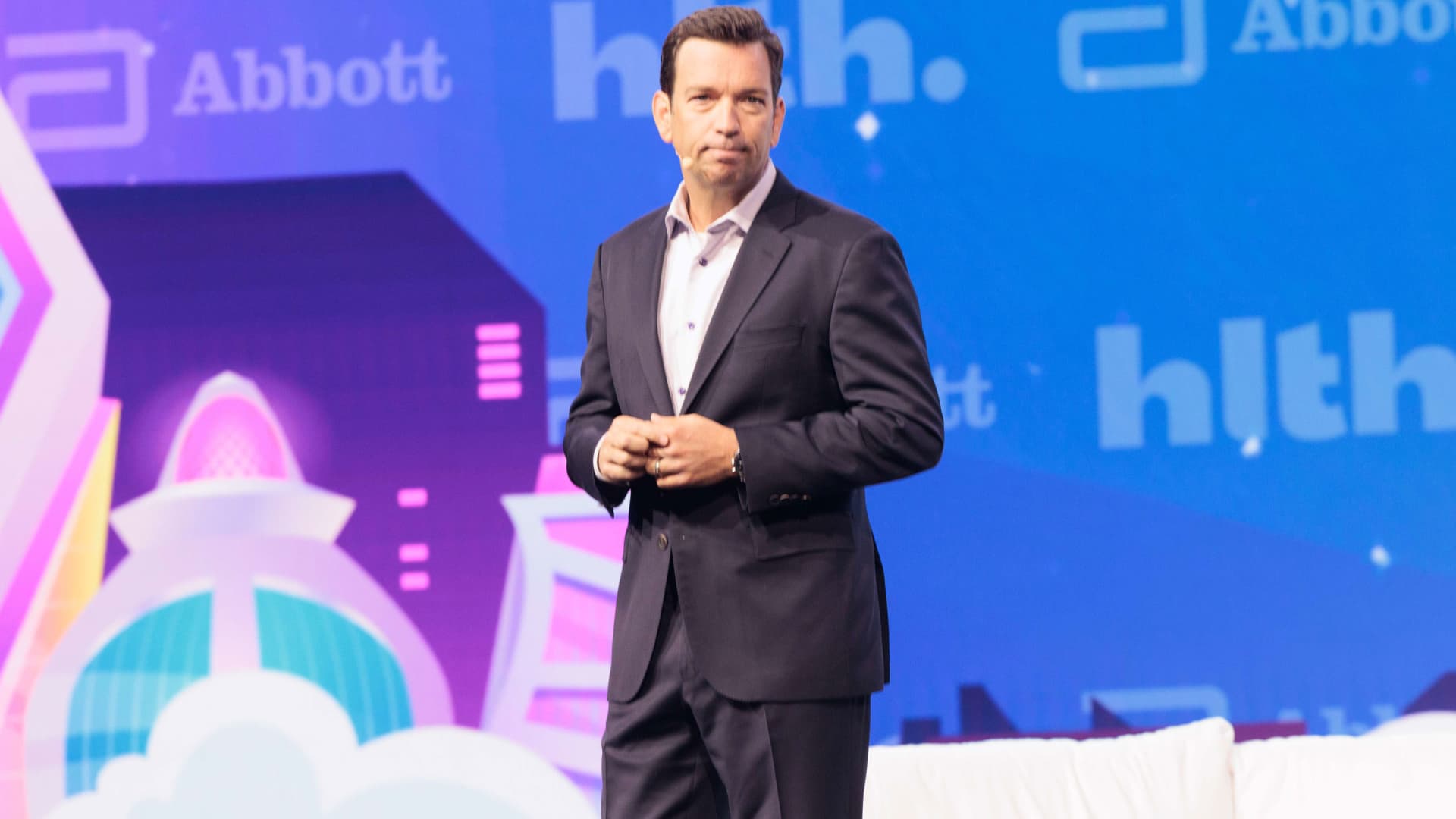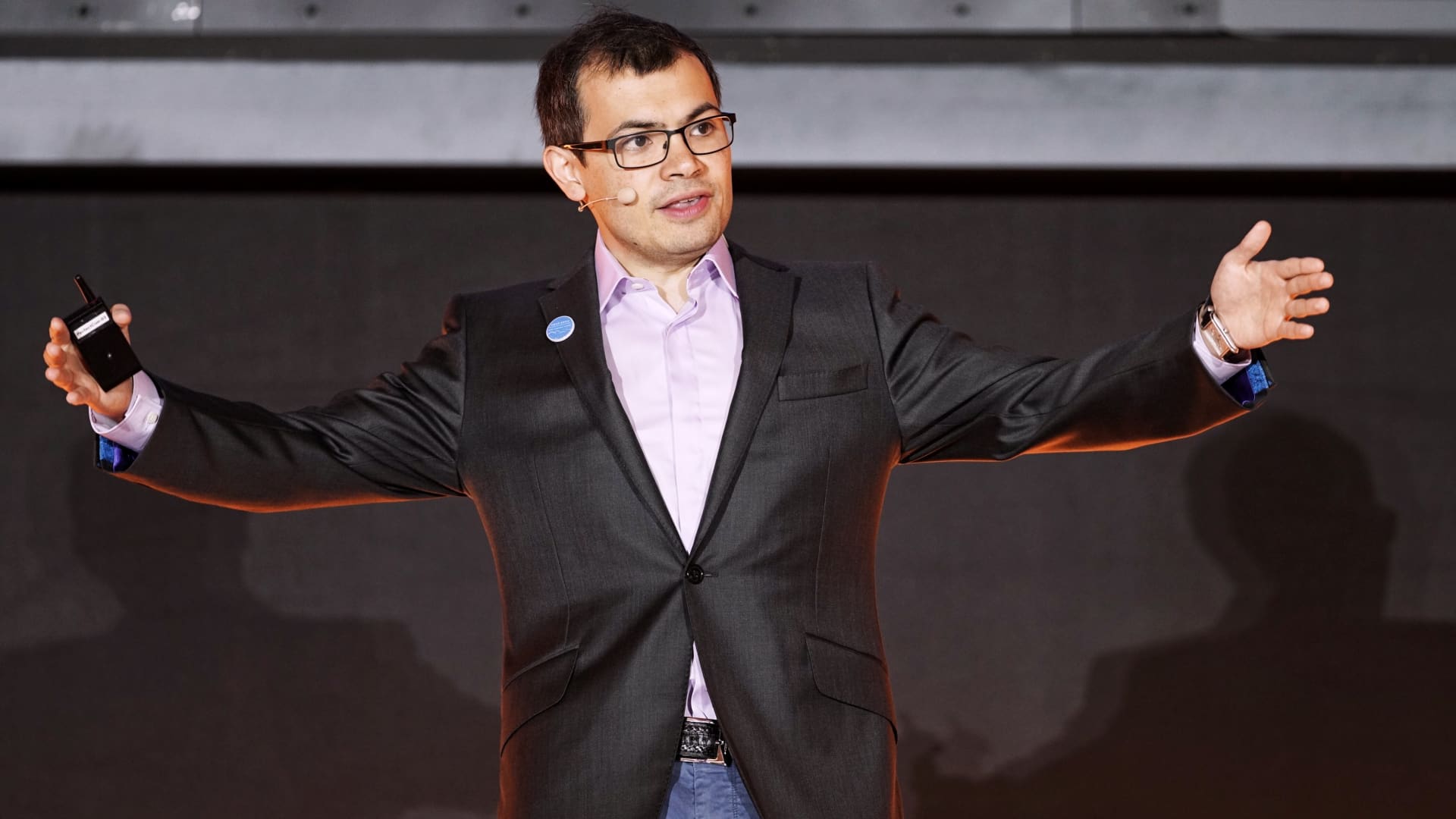Nvidia and Capital One invest in Databricks at $43 billion valuation

Ali Ghodsi, co-founder and CEO of Databricks.
Databricks
As some high-valued tech startups look to the long-dormant IPO market for their next funding round, Databricks is still finding investors that are happy to keep the company private, at least for now.
Databricks, which sells data analytics software, said Thursday that it raised more than $500 million in fresh capital at a $43 billion valuation.
Founded in 2013 and based in San Francisco, Databricks last announced funding during the boom market of 2021, at a $38 billion valuation. Since then, cloud software stocks have plummeted, with rival Snowflake losing 45% of its value. However, unlike fellow software IPO candidates Canva and Stripe, Databricks has managed to maintain its share price.
In the latest round, shares were sold at $73.50 a piece, roughly equal to where they were priced in 2021. The $5 billion increase in valuation is the result of new shares that CEO Ali Ghodsi said have gone to the 3,500 employees the company has hired in the past two years, as well as to investors. Headcount now sits at around 6,000.
While high interest rates and economic concerns continue to weigh on the tech market, particularly on companies that are burning cash, Databricks is capitalizing on a surge of momentum in artificial intelligence. In July, Databricks acquired MosaicML, a startup with software for efficiently running large language models that can spit out natural-sounding text, for $1.3 billion.
Nvidia is a new investor in Databricks, a notable addition as the chipmaker has been pouring cash into a host of AI infrastructure startups. Hugging Face, Cohere and CoreWeave are a few of the companies that Nvidia has backed at multibillion-dollar valuations.
Ghodsi said that he started talking to Nvidia CEO Jensen Huang “a while back,” and that a strategic tie-up has become more important with both companies going deeper into AI. Databricks spends a lot of money on Nvidia’s graphics processing units, largely through various public clouds, and even more now that his company owns Mosaic. He added that Nvidia and Mosaic had been in talks about a partnership before the acquisition.
“It made sense to partner more closely,” Ghodsi said. “At the core, we’re in complementary markets.”
Equally notable is the participation of Capital One’s venture arm as an investor for the first time. That’s because the bank is Snowflake’s largest customer. Snowflake finance chief Mike Scarpelli said at an investor event in August 2022 that Capital One was spending almost $50 million annually with Snowflake, and in November he said that the firm is its top customer and that it’s “taken them 5.3 years to get where we are now.”
Capital One is also a Databricks customer and uses the technology partly for fraud detection, according to a 2021 blog post.
Existing investor T. Rowe Price led Databricks’ latest round, and was joined by Andreessen Horowitz, Baillie Gifford, Fidelity, Morgan Stanley’s Counterpoint Global and Tiger Global, among others.
Ghodsi said that when the company started talking to investors about a potential financing round a couple of months ago, his “original guidance was no more than $100 million.” That number ultimately swelled fivefold as more investors wanted to join, he said.
As for a potential initial public offering, Ghodsi said that’s still on the road map, and that this funding doesn’t change the company’s plans. He didn’t say when an IPO might happen.
Databricks will get to see how much demand there is for new tech opportunities in the coming weeks. Chip designer Arm is returning to the public market on Thursday after getting taken private in 2016. Grocery delivery company Instacart and software vendor Klaviyo filed their prospectuses last month. There hasn’t been a notable venture-backed tech IPO in the U.S. since late 2021.
Many enterprise software makers have been trying to limit spending while growth rates slow because the uncertain economy has led big customers to reduce their purchasing. Databricks has stayed in growth mode and hasn’t announced any layoffs.
Ghodsi said much of the cost cutting he’s pursued was in his company’s use of technology, particularly software subscriptions.
“We spent $30 million on 300 pieces of SaaS software,” Ghodsi said, referring to software as a service. “I said, ‘Let’s halve that.'”
In the quarter that ended in July, Databricks said it reached a $1.5 billion annual revenue run rate, with sales growing 50% year over year. Snowflake, whose shares debuted on the New York Stock Exchange in 2020, reported 36% growth in the latest quarter to $674 million in revenue.
WATCH: MosaicML acquisition will allow us to democratize A.I. for startups





